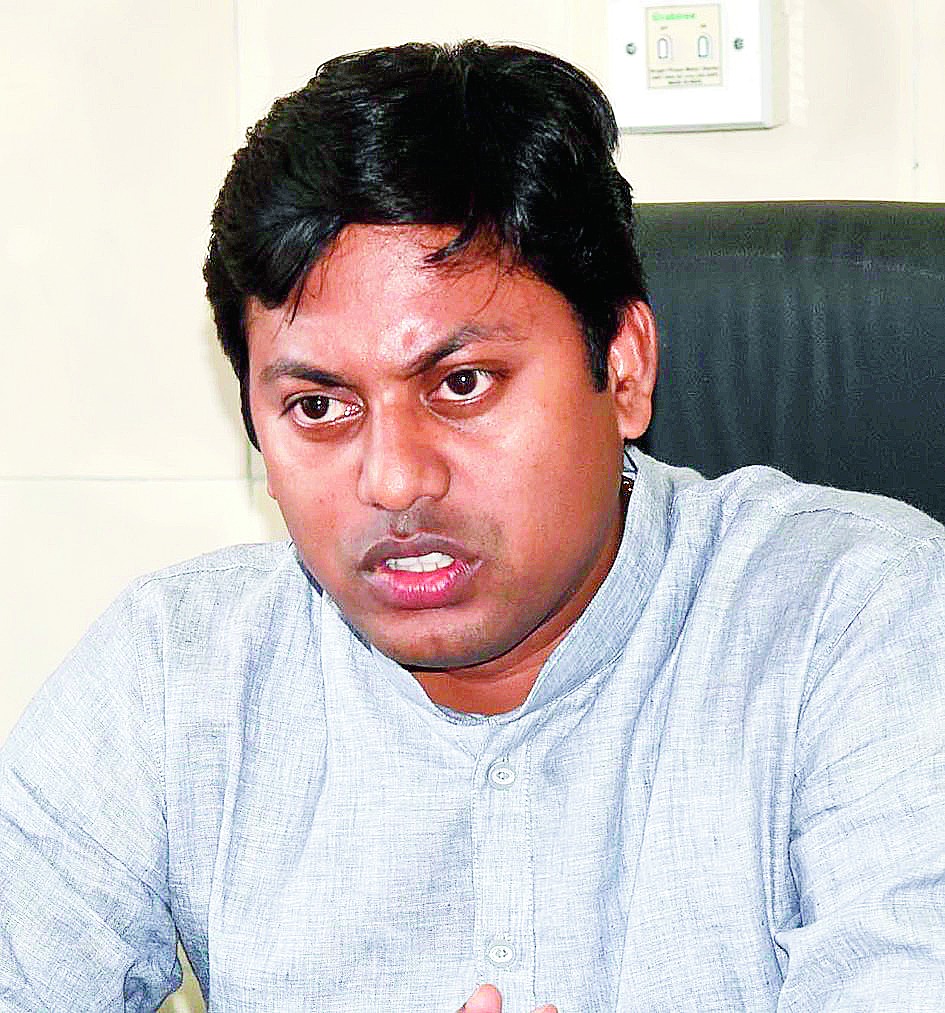
Guwahati, Aug. 25: Assam minister of state (independent charge) for power Pallab Lochan Das today said the process of laying transmission lines across the state was being impeded by the Rs 650-crore liability inherited from the previous Congress government.
"The earlier government spent Rs 450 crore in the name of infrastructure development, but we have no bills supporting these (expenditures). The government also had an earlier debt of around Rs 200 crore. So, we inherited a total (debt) of Rs 650 crore from the earlier government," Das told reporters at the Secretariat this afternoon.
"Because of this reason, despite having adequate electricity with us, we are not being able to streamline the transmission system throughout the state," said Das.
"The transmission channels are rickety. At times of storms and other calamities, the transmission lines often get damaged and are not repaired properly. Our first priority is to review and repair those channels and then we will have to devise a way for proper maintenance," the two-time MLA said.
To properly maintain powerlines, Das said, the state government would form a committee in every constituency.
"The legislators will head the committee in their respective constituencies. They will send a report of the requirement of transformers, electric poles or wires to the state governments. The supply will be made on their reports. Otherwise, there has been instances of misuse," Das said.
In the summer or peak season, the state requires 1,400MW to 1,500MW of electricity while in winters, or off-season, the requirement is 1,000MW to 1,100MW.
Das said the state produces only 250MW of energy while the shortfall is procured from other agencies.
However, the state government is mulling on increasing the state's power production.
"We have plans to increase the power production at Dampur plant and Lakwa thermal power station and a few others. We are planning to increase the capacity of the Kopili hydroelectric project on the lower Kopilli river," Das said.
He also stressed on solar power and urged people to install solar panels on rooftops. In the coming days, the government may even buy the excess electricity produced by residents, he said.
"Sooner or later, we will have to resort to renewable source of electricity. Despite having a higher capacity infrastructure, our production gets hampered owing to lower supply of gas, petrol or diesel. We are planning to install rooftop solar plates in government offices, in the Secretariat and on streetlights," Das said.











